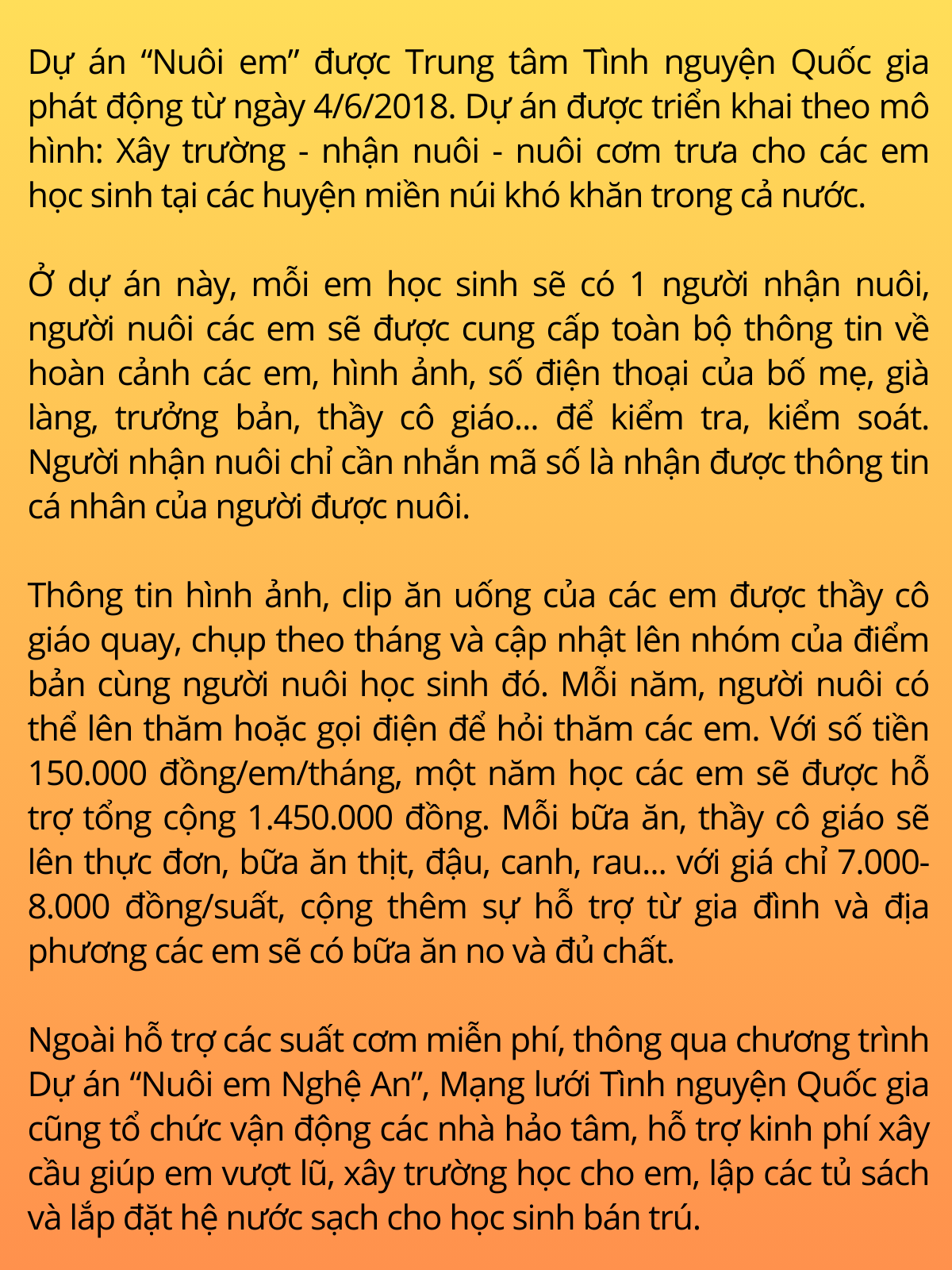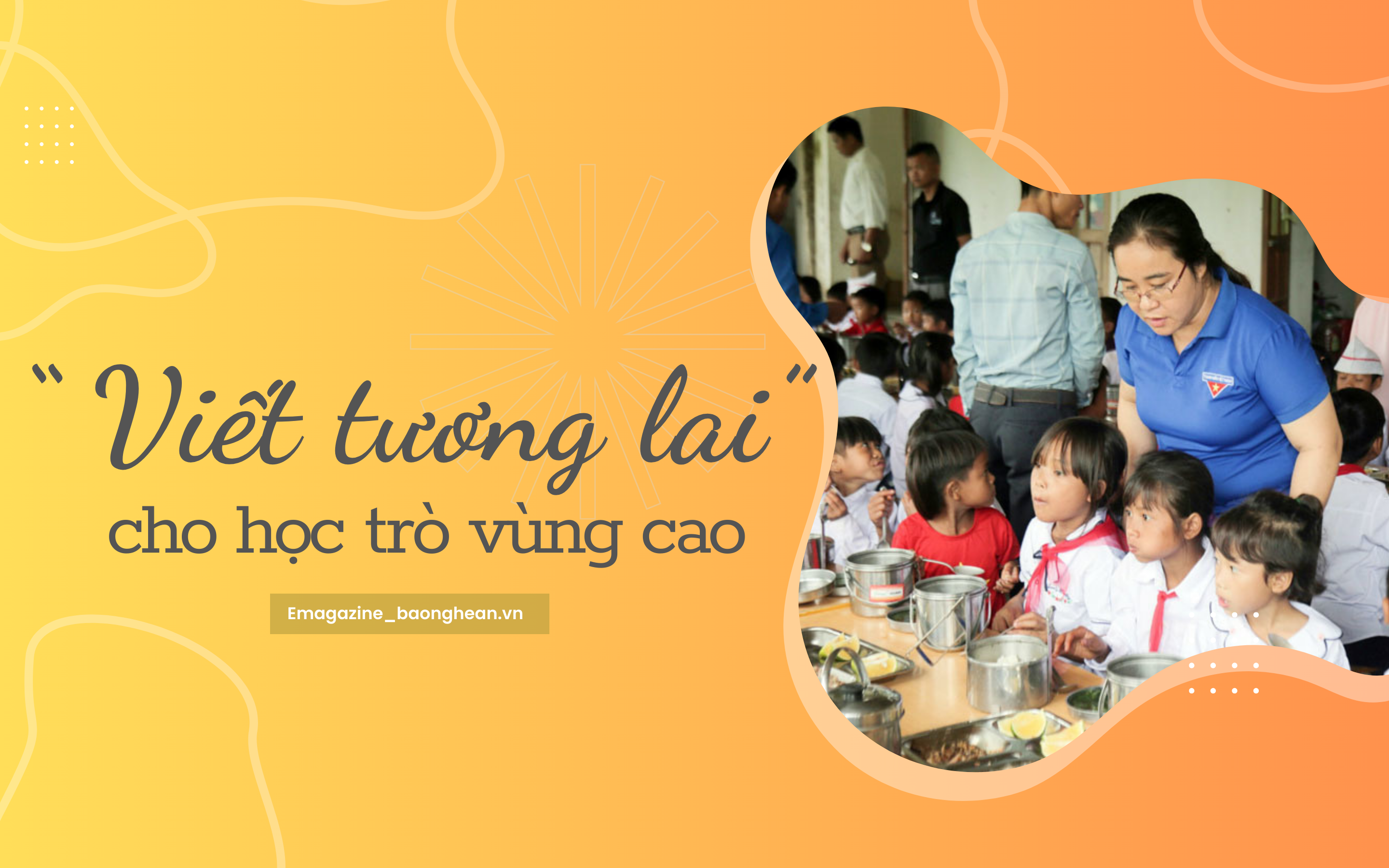
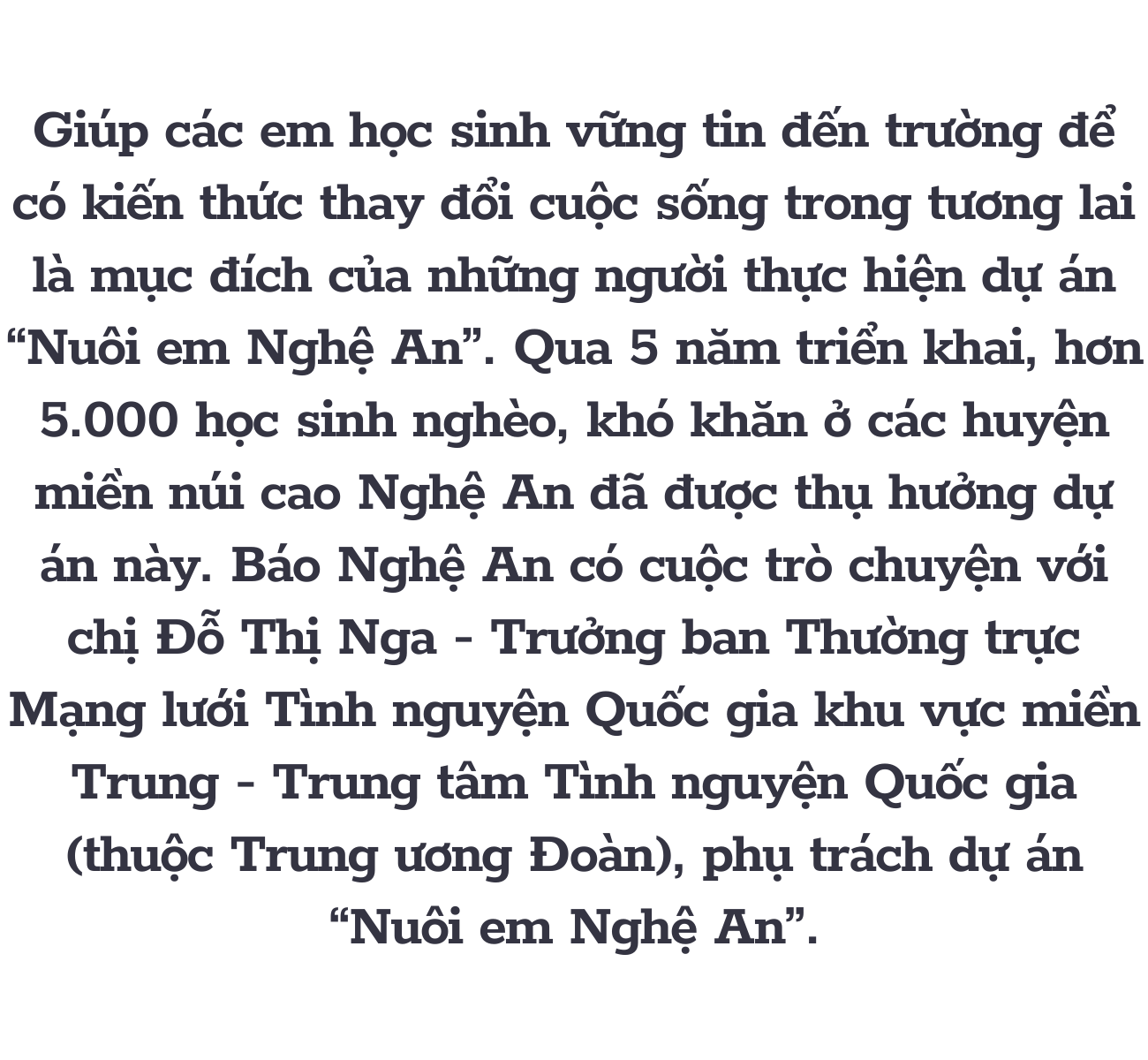
PV: Hello, I just read the open letter from the Principal of Xa Luong Kindergarten (Tuong Duong) sent to the program calling for support for lunch money for students at Na Be - Hop Thanh school, two schools in a particularly difficult area of Tuong Duong district. Here, there are 80 students who are of the Khmu and Mong ethnic groups; their parents work far away, and they mainly live with their grandparents. The children go to school every day, bringing their own lunch to class, the quality of the meals is not guaranteed, they are cold and lack green vegetables... Can you share your feelings when receiving letters like this?
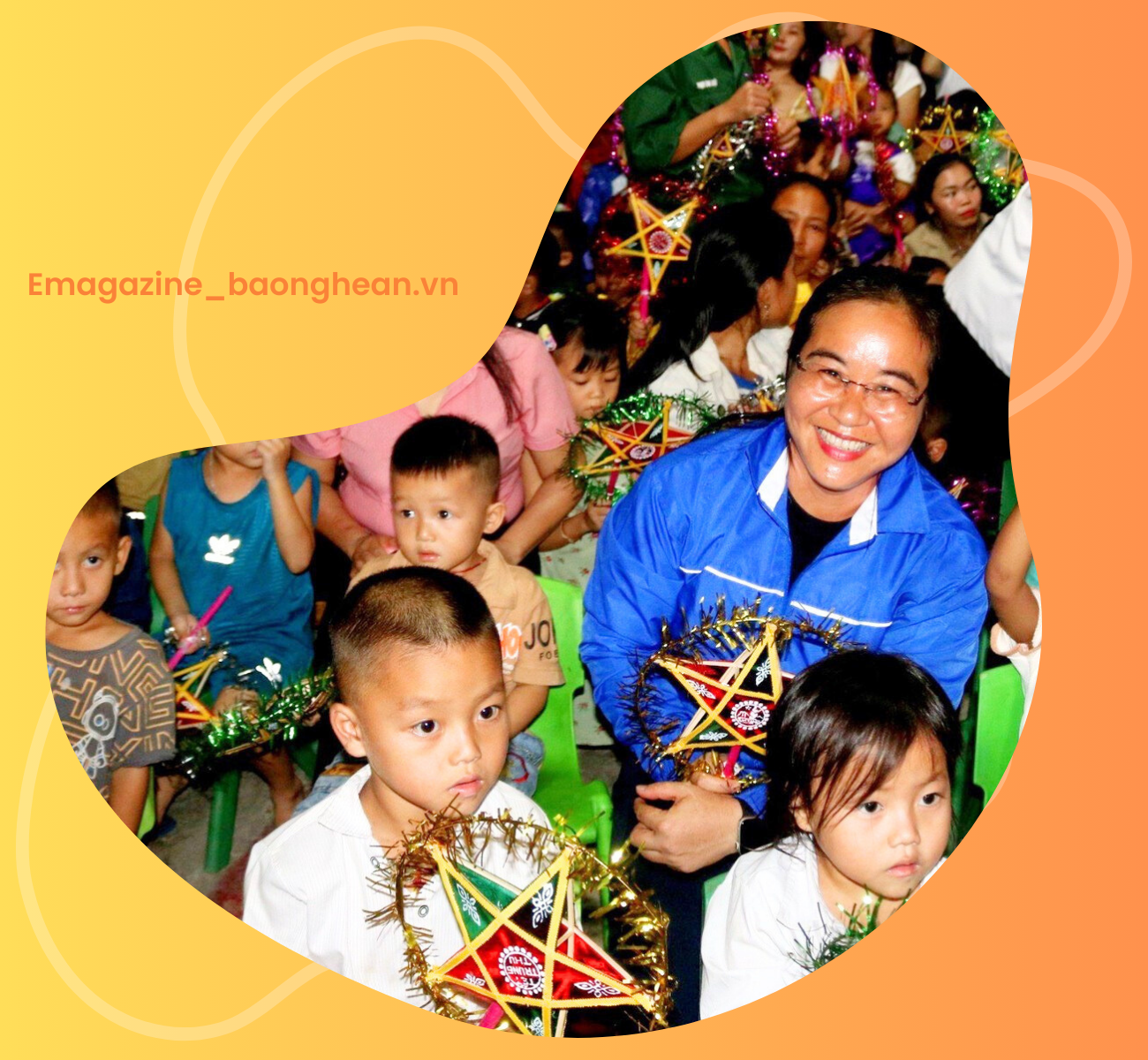
Ms. Do Thi Nga:I used to work in education, and I used to live in mountainous areas. Therefore, for me, education is the only way to change lives and I do not want students to be uneducated, just because of hunger. Talking about hunger, I have witnessed many students going to school with thin porridge cooked with cold rice. I understand this feeling, so when I receive letters like that, I want to quickly find a way to help students eat as soon as possible. Because I understand that parents' psychology is that no matter what we say, first of all, their children must have a full stomach before considering other things. I often tell donors that we only contribute 150,000 VND per month for a student, but we are contributing to writing the future for a child.
PV: You have been involved with the "Feeding Children in Nghe An" Project since its inception; how did you come to this special project?
Ms. Do Thi Nga:Your question reminds me of the memory of 2016. At that time, through the sharing of a friend who was working at Nghe An Customs, I had the opportunity to go to Huoi Poc village, Nam Can 2 Primary School (Ky Son). Initially, this trip was simply a volunteer trip to a school 10km from the center, without electricity, no phone signal, and very difficult travel conditions. After transporting a large amount of goods to the village, our group was preparing lunch with the school principal, when I saw a student holding a lunch box, coming to the teachers' kitchen and taking a handful of salt and putting it in the lunch box to take away. Another student came in to ask for hot water, put it in a pack of instant noodles and then went out to share it with other students. Would you believe it, at that time I stood in the middle of the school yard with tears falling and I asked the school principal why the students were suffering like this. The principal shared the stories of the students there. Their circumstances were very difficult, their parents mostly worked far away, so they did not come home at noon and had to eat the meal prepared at home in the morning.
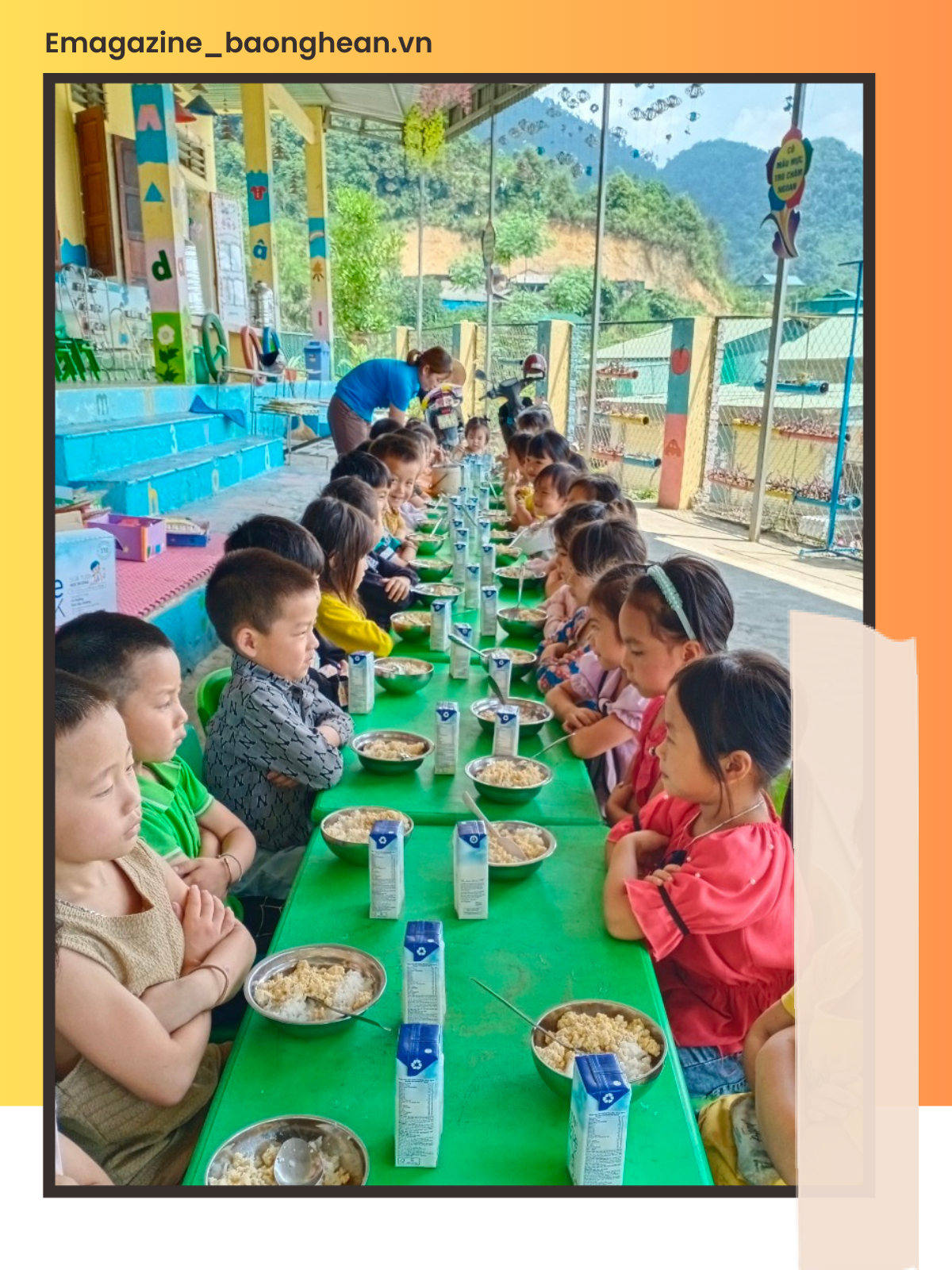
After this trip, I asked my teachers what should be done for the students here and I received advice: "Bring what people need, not what they already have. Now the students are hungry, so let's bring meals to the students." At the right time, the Ministry of Education and Training together with the Central Youth Union are implementing a social mobilization program to bring meals to students in the highlands. The National Volunteer Center is piloting the "Feeding Children" project in some northern provinces. And I am the third person in the country to bring the "Feeding Children" project to students in Nghe An.
In the first year, the project was only implemented for more than 200 students in the mountainous areas of Nghe An and up to now, after 6 years of implementation, the project is supporting meals for 5,300 students across the province, with a support level of 150,000 VND/student/month. The beneficiaries are preschool and primary school students who have not enjoyed the boarding regime according to the State's policy and whose houses are far from school or those in especially difficult circumstances.
PV: The project “Nuoi em Nghe An” is mainly implemented in mountainous districts. So, from the beginning, what difficulties and obstacles did you foresee?
Ms. Do Thi Nga:I never thought about the difficulties when implementing the program in Nghe An. In fact, the more difficult the area, the more I like to go. The reason I chose Nghe An is because I love the students here. Nghe An is a land of learning and I see the students' love for learning. Many children have parents who tell them to quit school and stay home to work in the fields, but they still go to school.
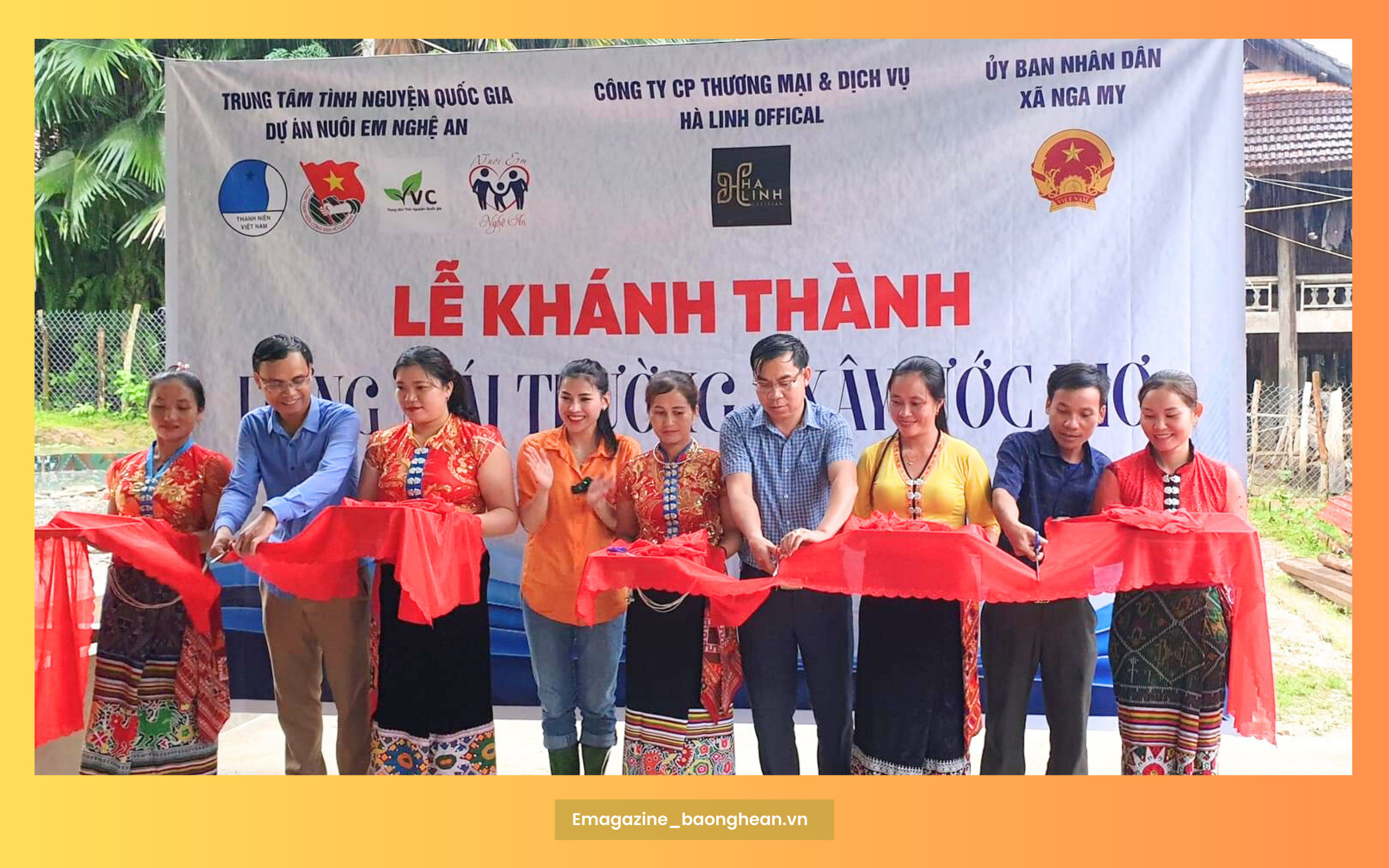
Up to now, it seems like every month I go to Nghe An to check the kitchen, check the implementation in schools. Many people have asked me if I am from Nghe An and I once wrote on my personal page: I love Nghe An, even though this is not the land that gave birth to me. I love the sun, the wind, the hard work of the people here... And I have been attached to this land for 6 years. When I started doing it, my colleagues and I only thought that we would try to do as much as possible for the students, not daring to think about the results. But now looking back, we are very proud because after the efforts of many people, and we were just the connectors, we have brought about many positive results.
PV: Are you surprised that your project, which started with only 1 to 2 schools with more than 200 students, has now expanded to 80 schools with more than 5,000 students being supported?
Ms. Do Thi Nga:The increase in numbers was unexpected. Since May 2023, the number of students supported by the program has reached more than 2,000. However, when the number of students is increasing day by day, I personally feel sad. I still tell my brothers in the Central National Volunteer Network and the standing committees of the regions: I just hope to be unemployed because by then our people will have enough. But at present, I really do not expect the numbers to increase, because then our people's lives will be too difficult.
PV: You have been with the program for many years and have traveled to many places across the country. What is your biggest concern about Nghe An?
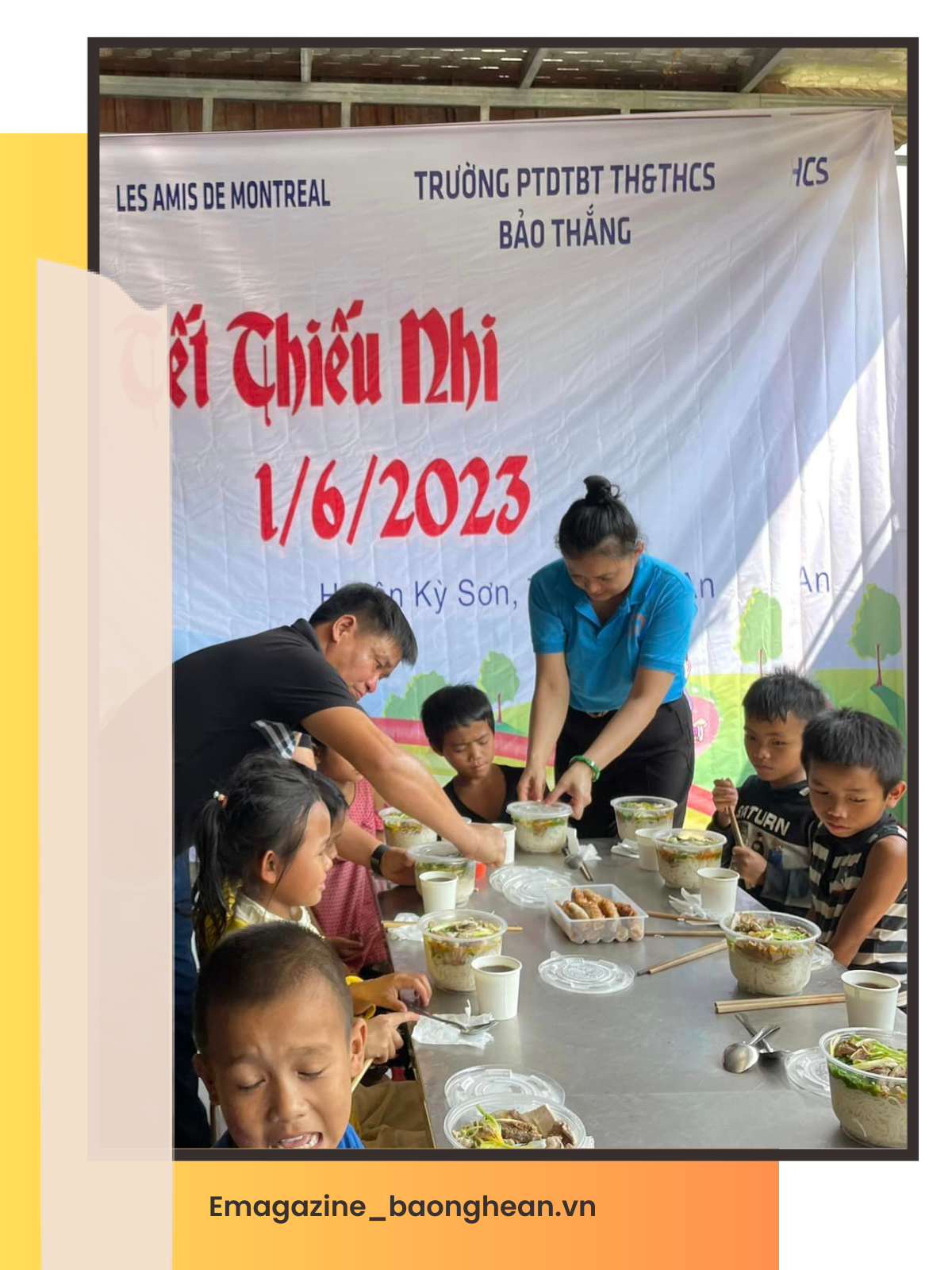
Ms. Do Thi Nga:This year is the 8th year I am in charge of the national volunteer network in the Central region and I see many other provinces such as Thanh Hoa, Quang Ngai, each locality has only one or two districts in the particularly difficult area. But Nghe An alone has 6 mountainous districts. Each time we go through 2 arcs, we still have not gone through Nghe An, showing that the conditions here are really difficult. I see that ethnic minorities all want to escape poverty, but they do not have knowledge, sometimes they are illiterate... Why am I passionate about this land? I remember one time I went to Ta Ca village of Nam Can commune (Ky Son) to install solar power systems for 2 kindergartens and primary schools, I went to the parents' house to ask to cook lunch, I asked them how they raise livestock here and this parent confided that buffaloes and chickens died without knowing the cause. Only then did I see a smartphone of theirs on the table, I advised them to go to Google to search for the cause. However, this parent said that he was illiterate. Their answer kept bothering me…
I have worked in the education sector for many years and know that the goal of primary school (after grade 5) is for children to know how to read and write. When they go out into the world, they will know how to read and write, and their lives will be less miserable. Children who want to continue their studies can go to boarding schools or district or provincial boarding schools. But with preschool and primary school, children are not cared for, and if they drop out of school, illiteracy is very likely to occur. With passion and responsibility, the program will sponsor the children until grade 5. We will save and collect simple meals so that students can write their own lives with their own feet.
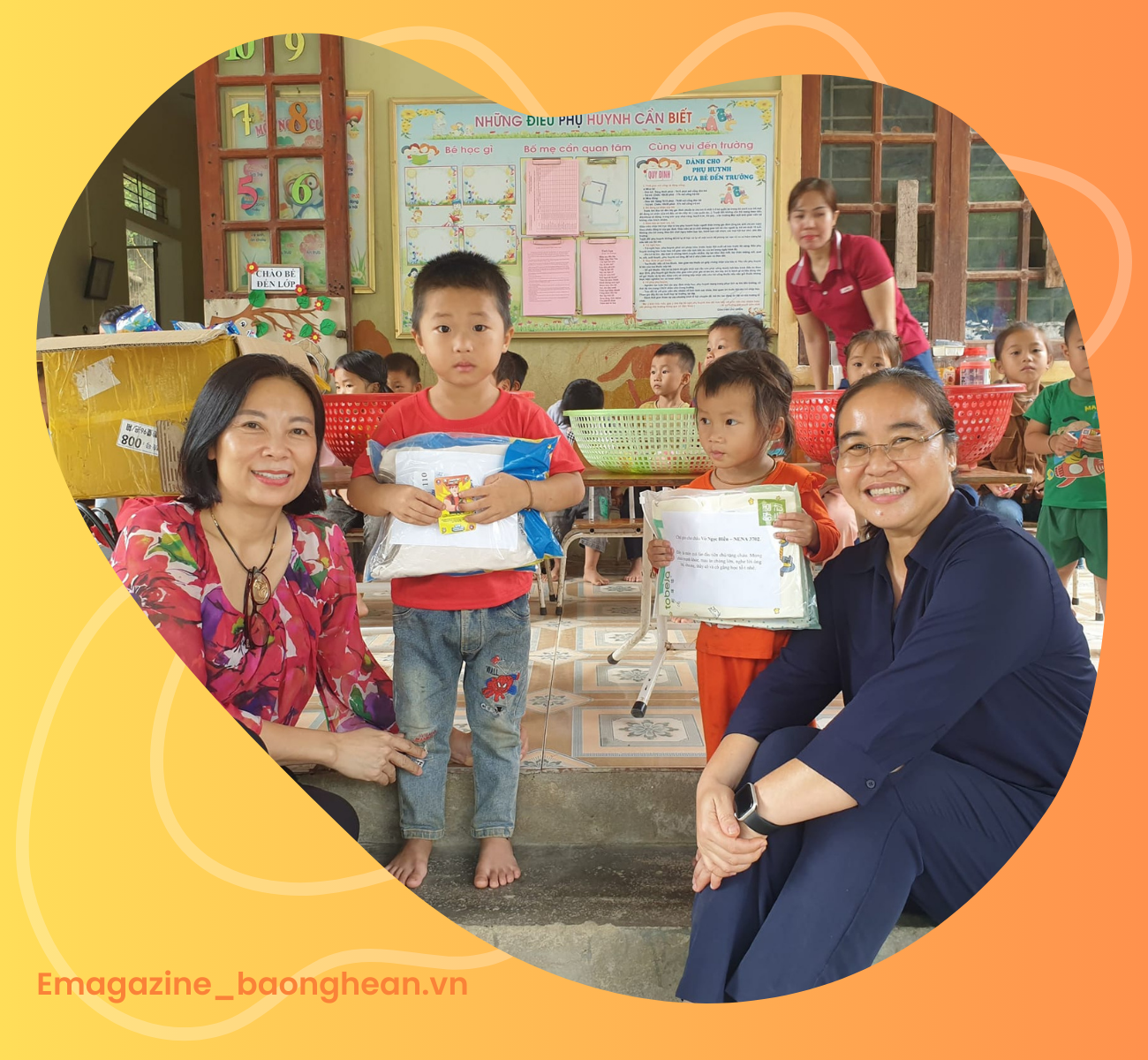
PV: Returning to the open letters from principals sent to the program, have you received any letters that you could not implement?
Ms. Do Thi Nga:There are places we go to, students ask me “teacher, can we eat it again next year?”. There are villages where students still do not know what ice cream is, do not know how to eat pho, do not eat vermicelli, they have never been to the central village… We care about these very small things and make every effort to make their childhood complete. Recently, we organized a program “Tet wish” and let the children write down their wishes. Some children wanted to see their father, some wished for a ball, some wanted a pink dress and we tried to make all their wishes come true.
To date, after 6 years, we have not turned down a single open letter. And we have been fortunate that the funding for the program has never been exhausted, and we have always received help from generous donors who have sponsored students.
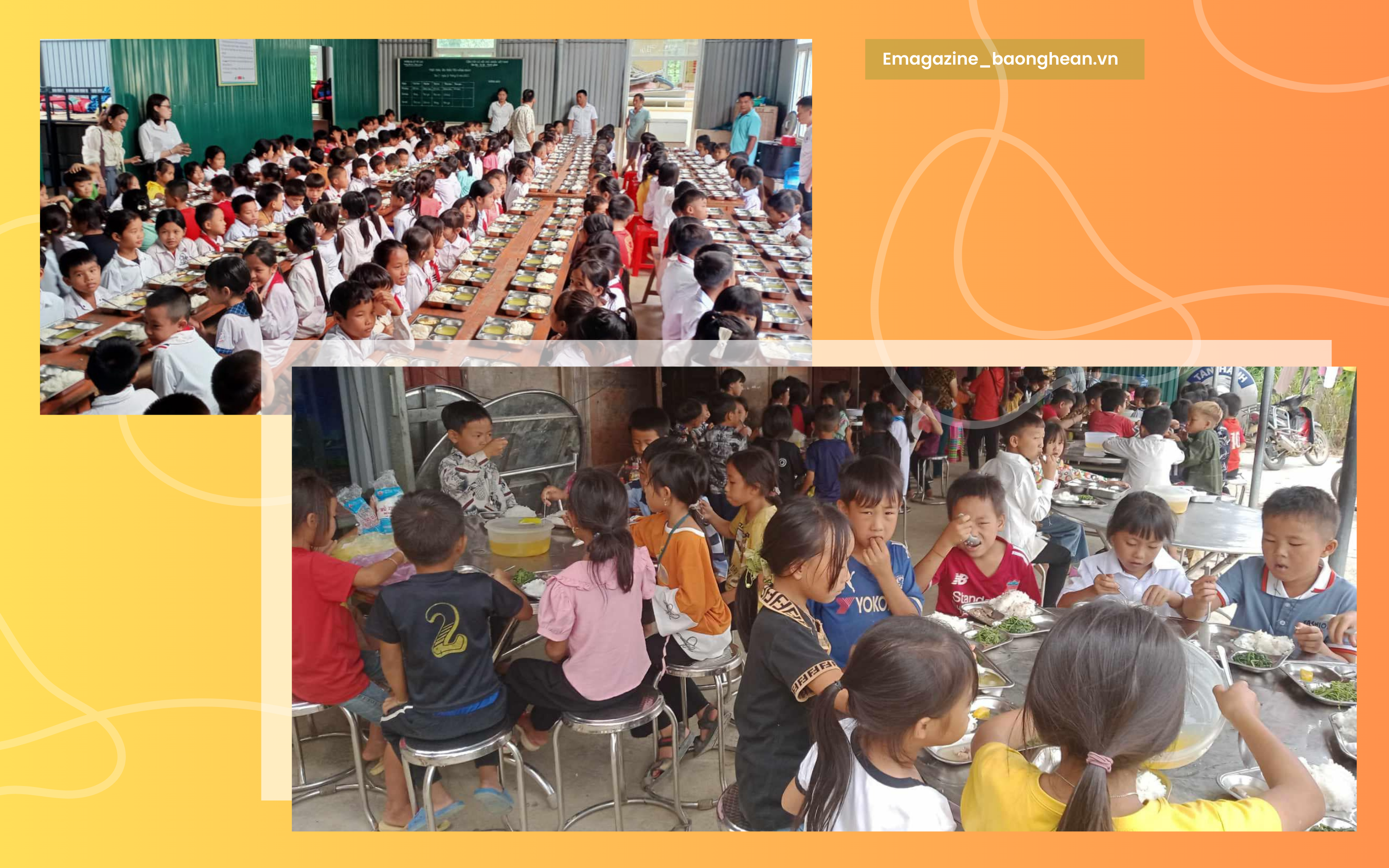
During the implementation process, we are truly grateful to the donors who have silently supported the program. There were people who initially sponsored only 1 or 2 children. But after a short time, seeing the effectiveness of the program, some people accepted up to 50 children. There were many donors who flew from abroad just to meet the students they sponsored. Many people after their trips also supported the construction of bridges, schools, classrooms, etc.
Over the years of implementing the program, every day looking back at the images that the schools sent, which were clips, the children's meals, we were very happy. At that time, we thought that, no matter how hard it was, we would try. Our final motto when receiving financial support resources was to use them transparently, from the right source, and for the right purpose, economically and effectively.
PV: Thanks for the chat!
